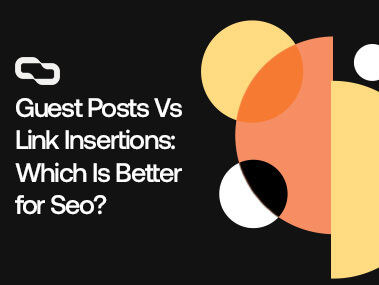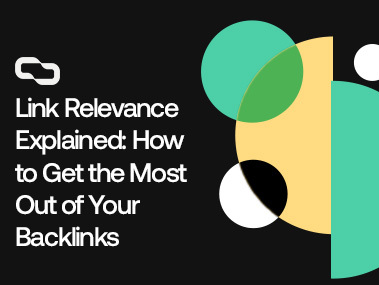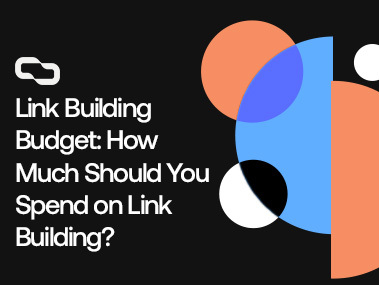One-Way Link Building: A Comprehensive Guide
One-way link building is more than just an SEO tactic; it's a stamp of approval from other site owners, a signal that your website is a treasure trove of value and worth paying attention to.
In this comprehensive guide, we'll explore what one-way links are, why they're superior to reciprocal links, and provide a suite of strategies that you can apply to make your website a magnet for these valuable links in 2024.
Key Takeaways
One-way links from respected sites act as strong endorsements, validating your content's value and enhancing your site's authority and search rankings.
Earning one-way links naturally through quality content and genuine engagement aligns with Google's guidelines, helping you avoid penalties and establish a sustainable online presence.
Employing a variety of tactics, such as original research, creating useful tools, and engaging in forums, diversifies your link profile and strengthens your website's SEO, driving more traffic and credibility.
What Are One-Way Links?
One-way links, also known as inbound links or backlinks, are links from one website to another without any reciprocal link back.
For instance, if website A links to website B, but website B does not link back to website A, that's a one-way link.
These links are akin to digital votes of confidence, signaling to search engines that the content is valuable, credible, and worth referencing.
What Are The Benefits of One-Way Links?
1. Increased Website Authority
When reputable websites link to your site, they're essentially vouching for your content's quality and relevance.
It's like getting a thumbs-up from the experts in your field, which not only boosts your site's link popularity in the eyes of search engines but also in the perception of users.
Search engines use these high-quality backlinks as a key metric to determine your site's authority.
The more high-quality one-way links you have, the more search engines consider your site a reliable source of information, which can significantly boost your rankings in search results.
Building website authority isn't an overnight process, but the effort pays off.
As your site's authority grows, it becomes easier to rank for more competitive keywords, which can lead to a virtuous cycle of increased visibility and more authority links.
2. More Organic Traffic
High-quality one-way links can improve your search engine rankings, making your site more visible to users.
Better visibility means more clicks and more clicks mean more money.
Additionally, editorial links from industry-relevant sources tend to bring in referral traffic that's genuinely interested in your content, products, or services. This targeted traffic is more likely to engage with your site, increasing the chances of conversion.
3. Avoid Google Penalties
Google's algorithms are designed to reward sites that gain links naturally over time.
Valuable one-way links, when acquired organically, contribute to a natural link profile, signaling to Google that your site is gaining popularity for the right reasons.
Manipulative, black-hat link-building practices, such as excessive reciprocal links or PBNs can lead to penalties or a drop in rankings.
By focusing on earning one-way links from other sites through high-quality content and genuine engagement, you minimize the risk of being penalized by Google.
One-Way Links vs. Reciprocal Links
One-way links are often seen as the gold standard in SEO because they are considered genuine endorsements of a website's content.
When a site links to another without any reciprocal arrangement, it's usually because they find the content valuable and worth sharing with their audience.
This organic nature of one-way linking is highly favored by search engines, as it indicates that the content is of high quality and beneficial to users.
Consequently, one-way links can significantly boost a website's authority, improve its search rankings, and increase its visibility to a broader audience.
On the other hand, reciprocal links involve a mutual agreement where two websites agree to link to each other.
While not inherently harmful and often a natural part of web interactions, when overdone, reciprocal linking can be perceived by search engines as an attempt to manipulate search rankings.
Excessive reciprocal links, especially when not particularly relevant or valuable to users, can trigger search engines' algorithms to view such practices as link schemes.
In such cases, rather than benefiting the websites involved, reciprocal linking can lead to reduced search visibility and even penalties if perceived as an attempt to game the system.
Strategies for One-Way Link Building That Works in 2024
1. Conduct Original Research
Creating and publishing your own research makes you the go-to resource for information, which encourages others to link to it.
This not only boosts credibility but also increases the likelihood of acquiring high-quality links.
Topic Selection: Choose topics that are not only relevant to your industry but also have the potential to uncover new insights. This could involve trends, user behavior, or industry benchmarks.
Methodology: Decide on the research methodology - surveys, data analysis, interviews, etc. Ensure your methods are robust and can withstand scrutiny.
Data Collection: Gather data meticulously, ensuring its accuracy and relevance. The more comprehensive your data, the more authoritative your research will be.
Analysis and Presentation: Analyze the data to draw meaningful conclusions. Present your findings in a clear, engaging manner, using visuals and easy-to-understand language.
Promotion: Beyond just sharing on social media, consider creating a press release for your research, reaching out to industry influencers, and presenting your findings in webinars or industry conferences.
2. Create Free Online Tools
Offering useful tools for free is one of the best white hat strategies to earn one way links. Users and other websites are likely to reference and link to your tool if it adds value or solves a problem.
Tool Identification: Conduct market research to identify what tools your audience needs but doesn't have. Look for common questions or pain points in forums and social media.
Development: Focus on user experience and simplicity. The tool should be intuitive and solve the identified problem efficiently.
Testing: Before launch, thoroughly test the tool to ensure it's bug-free and user-friendly.
Launch and Promotion: Create a dedicated landing page for the tool, explaining its benefits and usage. Promote the tool through all available channels, emphasizing its value and free availability.
3. Create Infographics
Infographics are shareable and visually appealing, making them link magnets. A well-designed infographic that presents valuable information can earn numerous one-way links.
Data Gathering: The data should be recent, relevant, and robust. Use credible sources and ensure the data tells a compelling story.
Design: The design should be professional and aligned with your brand. The information should flow logically and be easy to follow.
Embed Code: Provide an embed code so that others can easily share the infographic, ensuring you get a backlink.
Outreach: Beyond social media, reach out to bloggers or websites that might find your infographic relevant and encourage them to share or embed it.
4. Start a Digital PR Campaign
Digital PR involves getting your content mentioned in the media or on influential websites. This exposure can lead to a surge in one-way links from various sources.
Story Crafting: Your content or story should have a unique angle that's newsworthy and engaging for a broad audience.
Targeting: Identify and research journalists and outlets that cover topics related to your content. Personalize your outreach to increase your chances of getting noticed.
Press Kit: Create a press kit with all the necessary resources - images, background information, and additional data to make the journalist's job as easy as possible.
Follow-Up: Be polite and persistent. Follow up with your contacts to ensure they've seen your pitch but avoid being pushy.
5. Use HARO Link Building Strategy
Help a Reporter Out (HARO) is a platform where journalists seek expert insights. By providing valuable information, you can get mentioned in HARO articles, earning one-way links from reputable sites.
Fast Responses: Timeliness is crucial. Journalists are often on tight deadlines, so quick responses increase your chances of being featured.
Relevance: Only respond to queries that are truly relevant to your expertise. Irrelevant pitches are likely to be ignored and can harm your reputation.
Value: Provide comprehensive and insightful responses. The more value you offer, the more likely you are to be chosen.
6. Create Definitive Guides
Comprehensive guides that cover a topic in depth are invaluable resources that attract one-way links. They position your site as an authority, making others more likely to reference your content.
Content Depth: Cover the topic exhaustively. Look at what's already out there and aim to create something better and more comprehensive.
Usability: Break down the content into digestible sections with a logical flow. Use visuals, bullet points, and headers to improve readability.
Updates: Regularly update the guide to keep it relevant. This not only helps with user engagement but can also attract more links over time.
7. Engage in Forums
Participating in forums related to your niche can lead to one-way links. By offering insightful advice or information, you can encourage users to link to your content for further reading.
Value-First Approach: Your primary goal should be to provide value and establish credibility, not just to drop links. Genuine assistance and expert advice build your reputation.
Profile Optimization: Ensure your forum profile is complete, professional, and includes a link to your website.
Consistency: Regular engagement is key. The more active and helpful you are, the more likely you are to be noticed and trusted.
8. Guest Blogging
Writing high-quality guest posts for other websites can result in one-way links back to your site. Ensure the content is high-quality and relevant to the host site's audience for the best results.
Targeting: Choose websites that have a significant overlap with your target audience and a strong reputation.
Pitching: Your pitch should be personalized, clearly outline the value of your proposed article, and demonstrate your familiarity with the host's content.
Content Quality: Your blog post should be on par with or exceed the quality of content on your own site. This is your chance to make a strong impression on a new audience.
9. Use Directories
Listing your website in high-quality, relevant directories can provide one-way links. Choose directories wisely to avoid appearing spammy.
Selection: Opt for reputable directories that are specific to your industry or region. General directories have less impact and can sometimes be viewed negatively by search engines.
Accuracy: Ensure your business information is accurate and consistent across all directories. Inconsistencies can harm your credibility and search rankings.
10. Utilize Unlinked Brand Mentions
Monitor the web for mentions of your brand. If you find a mention without a link, reach out to the website owner and kindly request a link insertion.
Discovery: Use advanced search operators in search engines to find mentions across blogs, forums, and news sites.
Personalized Outreach: When you reach out, make it personal. Reference the mention and politely ask if they can include a link to your site.
FAQs
Why are one-way links important for SEO?
One-way links boost your website's authority and search engine ranking because they signify to search engines that other sites value your content.
Are one-way links from any website beneficial?
Links from reputable and relevant websites are more beneficial, as unnatural links from low-quality sites may not offer significant SEO value.
How can I earn one-way links for my website?
Create valuable content, engage in digital PR, conduct original research, and participate in community forums to naturally attract one-way links to your site.
Conclusion
One-way link building is an essential strategy in the arsenal of any website aiming for visibility and authority online.
By focusing on creating valuable, high-quality content and engaging with your community, you can earn high-quality links that boost your site's credibility and search engine ranking.
With the link-building strategies outlined above, you're well-equipped to enhance your website's one-way link profile and achieve digital success.
If you want to take your link-building to the next level, feel free to book a 15-minute consultation call with one of our expert link builders.
During this call, we'll dive into your site's specifics, discuss potential strategies, recommend backlink packages, and give you actionable steps to enhance your website's visibility.
Find out your exact cost of ranking for your dream keyword
Let’s get you ranking now
If you want the team at Get Me Links to help you get more traffic



